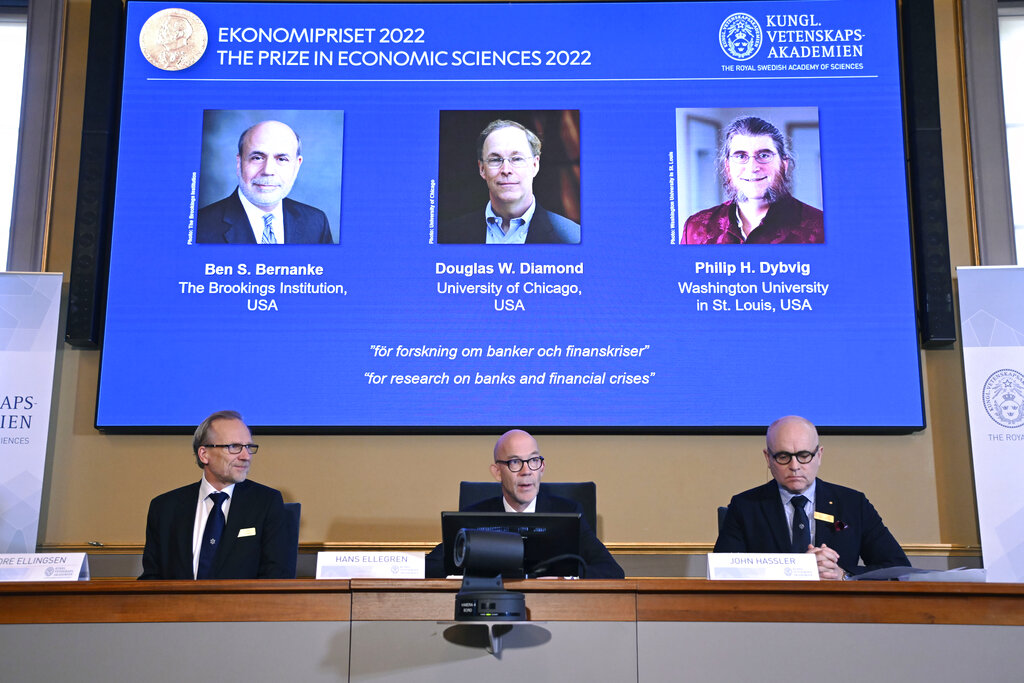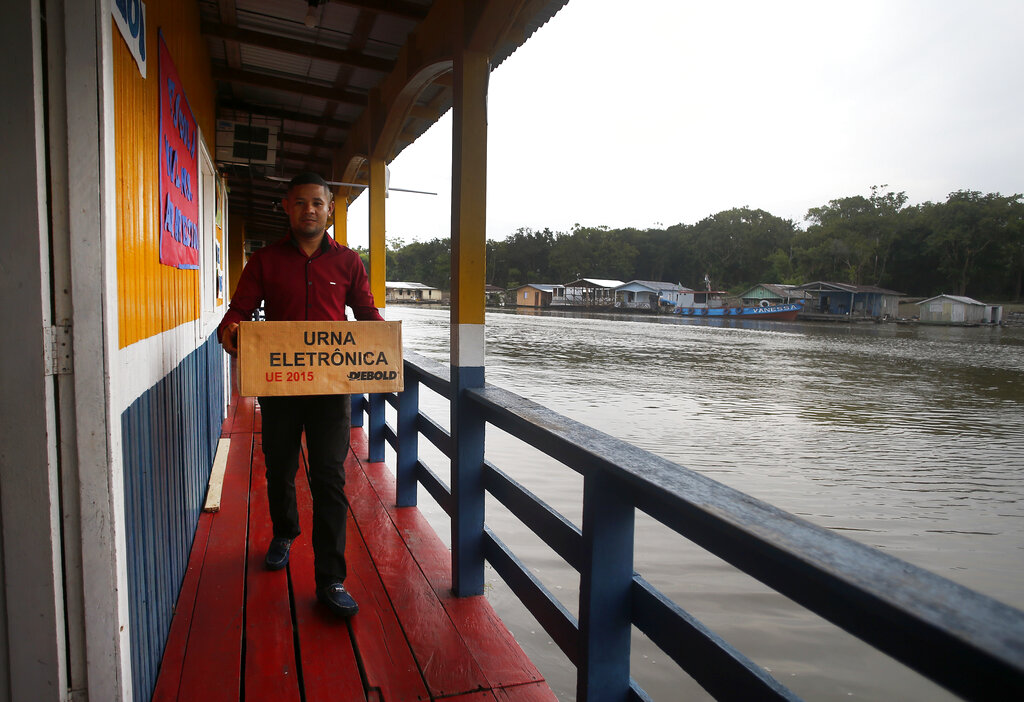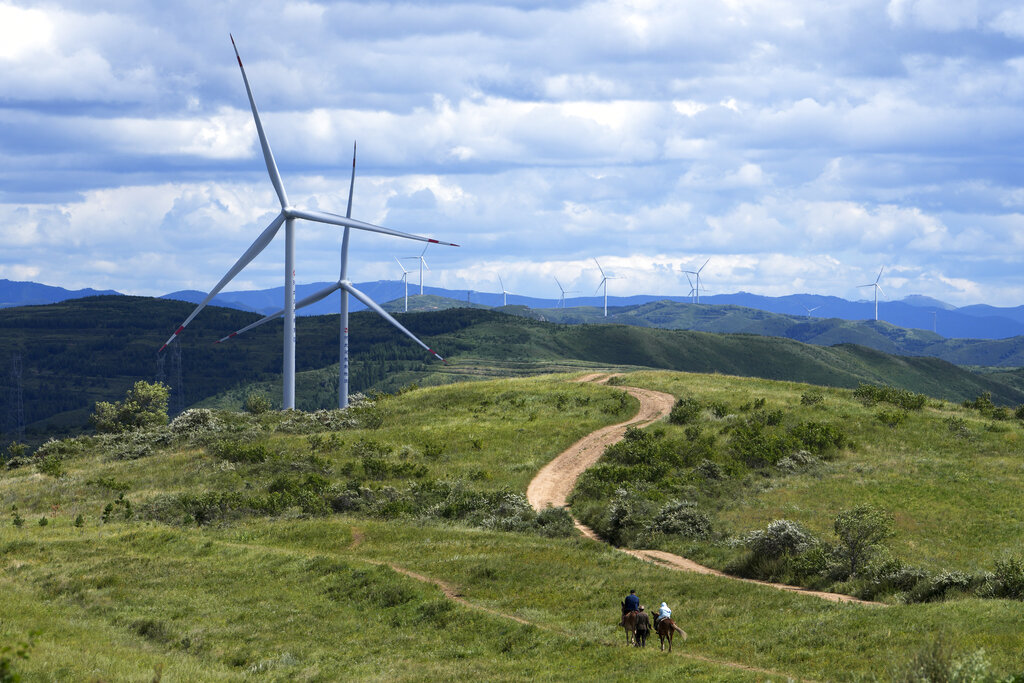View time: 1 min 40
Level : Advanced
View time: 1 min 40
Level : Advanced
Read time : 5 mins
Level : Advanced

By DAVID KEYTON, FRANK JORDANS and PAUL WISEMAN Associated Press
STOCKHOLM (AP) — Former Federal Reserve Chair Ben Bernanke and two other U.S.-based economists won the Nobel Prize in economics for research into bank failures — work that built on lessons learned in the Great Depression and helped shape America’s aggressive response to the 2007-2008 financial crisis.
The Nobel panel at the Royal Swedish Academy of Sciences recognized Bernanke, Douglas W. Diamond and Philip Dybvig on Monday for research that shows “why avoiding bank collapses is vital.”
Their findings in the early 1980s laid the foundations for regulating financial markets, the panel said.
“Financial crises and depressions are kind of the worst thing that can happen to the economy,” said John Hassler of the Committee for the Prize in Economic Sciences. “We need to have an understanding of the mechanism behind those and what to do about it. And the laureates this year provide that.” Continue reading
Read time : 3 mins
Level : Intermediate

By EDMAR BARROS and FABIANO MAISONNAVE undefined
MANAUS, Brazil (AP) — In most democracies, citizens go to the polls. But in Brazil’s sparsely populated Amazon region, the polls often go to the voters.
Most people in the vast rainforest live in urban areas, but thousands reside in tiny villages several days from the nearest city by boat. Amazonas, Brazil’s biggest state, is triple the size of California yet has only about one-third the population of greater Los Angeles. More than half its cities can’t be reached at all by road, and some are hundreds of kilometers from the state capital, Manaus.
Logistics pose a challenge even in Manaus, a sprawling municipality of 2.2 million people. On Saturday, The Associated Press accompanied election workers setting up a voting place in the Bela Vista do Jaraqui community, a three-hour boat trip from the city. Continue reading
View time : 1 min 35
Level : Intermediate
View time: 1 min 19
Level : Advanced
Read time : 4 mins
Level : Advanced

ANIRUDDHA GHOSAL and SIBI ARASU Associated Press
NEW DELHI, India (AP) — The queues outside petrol pumps in Sri Lanka have lessened, but not the anxiety.
Asanka Sampath, a 43-year-old factory clerk, is forever vigilant. He checks his phone for messages, walks past the pump, and browses social media to see if fuel has arrived. Delays could mean being left stranded for days.
“I am really fed up with this,” he said.
His frustrations echo that of the 22-million inhabitants of the island nation, facing its worst ever economic crisis because of heavy debts, lost tourism revenue during the pandemic, and surging costs. The consequent political turmoil culminated with the formation of a new government, but recovery has been complicated by Russia’s invasion of Ukraine, and the consequent upending of global energy markets.
Europe’s need for gas means that they’re competing with Asian countries, driving up prices of fossil fuels and resulting in what Tim Buckley, the director of the thinktank Climate Energy Finance, refers to as “hyper-inflation … and I use that word as an understatement.” Continue reading
